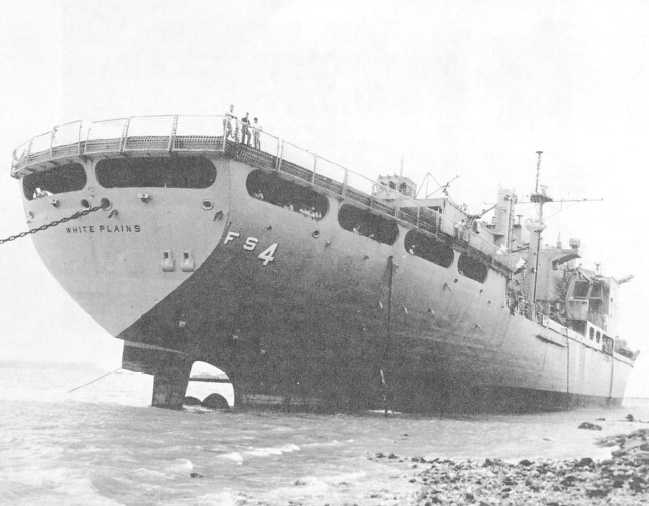PH2 John Gay
302.281
Figure 6-10.–USS White Plains is blown hard aground at Polaris Point, Apra Harbor, Guam.
A complete photographic record should include
photographs of the general terrain or site of the accident,
overall views of undisturbed wreckage, reconstructed
components or systems, and closeup views of important
or significant structural or other material failures. The
terrain pictures should show any surface irregularities,
presence of damage to buildings, trees, or other objects,
point of first contact, impact marks, and so forth. The
photographs should be made as soon after you arrive at
the scene as possible, since subsequent investigation
work or other conditions may alter or destroy the
evidence. After the terrain pictures have been obtained,
you should concentrate on photographing the
undisturbed wreckage. The emphasis here should be on
showing the attitude of the aircraft or vehicle at the point
of impact, the general extent of damage, and the
presence or absence of all major components, such as
the wings, stabilizers, elevators, rudder, and ailerons.
When fire indications are found in various areas of the
wreckage, show these indications together with any
corresponding indications of tire in the surrounding
area. These later photographs can often be used to
substantiate findings of ground fire versus in-flight fire.
Other points that appear to be significant from a
preliminary examination should be recorded before the
detailed wreckage examination is begun. Very often the
investigator decides to reconstruct or rearrange
particular parts of the wreckage to determine failure
patterns. A photographic record should be made of such
reconstruction work to assist in the subsequent
evaluation. Finally, closeup views of important
structural failures should be included in the
photographic record.
In general, the photographic record should be
complete enough to permit a person who is reviewing
and evaluating the accident report to appreciate the
6-20


